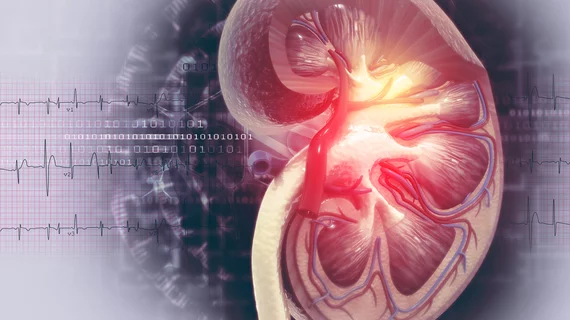Heart attack survivors with kidney issues face a greater risk of heart failure
Renal failure of any form is associated with an elevated risk of developing heart failure (HF) among AMI survivors, according to new data published in The American Journal of Cardiology.
The analysis included data from 237,549 AMI patients. Sixty-three percent of patients were men, and the mean patient age was 66.9 years old. All data was extrapolated from the United States Nationwide Readmissions Database.
The authors looked at adult patients who were discharged between January and June 2014 with a primary diagnosis of an AMI.
Renal failure was present in 24% of the cohort. AKI was seen in 13.8% of study participants. CKD, meanwhile, was seen in 16.5%. Also, end-stage renal disease was seen in 3.4% and AKI on CKD was seen in 7.7%.
Overall, patients with renal failure had lower coronary revascularization rates and higher in-hospital rates of heart failure (HF).
The authors also found that 5.4% were readmitted within six months post-discharge with a main diagnosis of HF. This was much more likely among patients with renal disease.
Patients with renal disease were also more likely to have a fatal HF readmission. The highest rates were seen in patients who had AKI on CKD.
“Our study findings highlight the substantial burden of renal failure in acute MI survivors and its prognostic impact on subsequent HF hospitalizations,” wrote lead author Srilanth Yandrapalli, MD, of Massachusetts General Hospital and Harvard Medical School, and colleagues. “Efforts are required to identify ideal strategies to minimize the development of AKI in patients with AMI. Careful optimization of care after discharge in patients with acute and chronic renal failure to identify clinical HF early can reduce progression to HF requiring hospitalization.”
Read the full study here.
